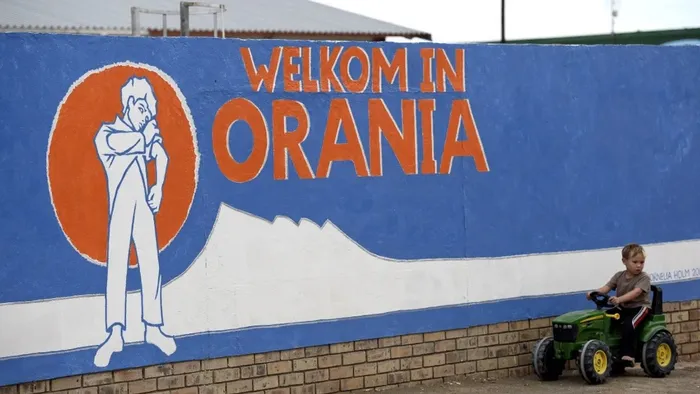ActionSA condemns Orania and Kleinfontein as symbols of apartheid nostalgia

ActionSA condemns Orania and Kleinfontein, calling them modern symbols of racial division, not cultural pride.
Image: File
ActionSA condemned the existence of Orania and Kleinfontein, describing them as dangerous symbols of racial isolation masquerading as cultural preservation.
ActionSA Parliamentary Chief Whip Lerato Ngobeni said she rejected the notion that these towns were legitimate expressions of cultural heritage.
She called them “sanctuaries of apartheid nostalgia, dressed up in the language of self-determination, but founded on the very bones of a brutal, exclusionary past”.
Ngobeni criticises the use of Section 31 of the Constitution, which protects cultural rights, saying it has been “dishonestly misused” to justify racial separation.
“That section protects cultural expression, not the establishment of modern-day Bantustans for those unwilling to let go of apartheid’s legacy,” she said.
The party, in a statement, said it rejected the idea that these towns are protected cultural enclaves, instead calling them “ideological fault lines” rooted in apartheid-era thinking.
The party draws a clear line between cultural preservation and what it sees as deliberate racial isolation, warning that Orania and Kleinfontein are not harmless communities but “breeding grounds for division and symbolic violence against the dream of inclusion.”
ActionSA contends that children raised in these towns are not being taught culture, but “to fear difference, to internalise racial superiority, and to live apart rather than together.”
Ngobeni does not confine her criticism to the towns themselves.
She pointed to a wider political culture that tolerates and, in some cases, enables such divisions, accusing other parties in Parliament of hiding behind liberal or revolutionary façades while “stoking hate, promoting division, and dodging responsibility for the flames they fan in society.”
ActionSA places the ultimate blame on the African National Congress government for failing to dismantle apartheid’s spatial and economic architecture. Ngobeni argues that decades of unfulfilled promises and rampant corruption have allowed racial exceptionalism to thrive.
“Instead of transformation, it delivered corruption, patronage, and dysfunction,” she said.
“It is precisely this failure that has given rise to racial exceptionalism disguised as cultural preservation.”
While millions of Black and Coloured South Africans continue to struggle without access to basic services, jobs, or safety, ActionSA says Orania and Kleinfontein remain symbols of inequality.
“The worshippers of Verwoerd flourish, untouched and unbothered. It is an insult to every South African who dared to believe in the promise of a non-racial democracy,” Ngobeni said.
She calls on South Africans to confront this reality directly, declaring, “It is time to bury Verwoerd, not just in memory but also in law, policy, and everyday practice.”
“You cannot claim to love South Africa while dividing its people. You cannot provoke chaos and still call yourself a leader.”
The condemnation of Kleinfontein has gained broader political traction beyond ActionSA.
A week ago, thousands of Economic Freedom Fighters (EFF) supporters marched to the 900-hectare settlement outside Pretoria, demanding its abolition.
The Pretoria High Court recently declared Kleinfontein unlawful, ruling that the land was designated for agricultural use and not approved for residential development.
EFF Gauteng chairperson Nkululeko Dunga, who led the march, called on Tshwane Municipality to immediately enforce the court’s decision, halt illegal development, and investigate the legality of Kleinfontein’s existence.
“Inspectors, law enforcement, and the city must investigate and regulate Kleinfontein,” Dunga said.
In response, acting head of Tshwane’s Human Settlements Department, Sello Chipu, assured marchers that the City would respond to the EFF’s memorandum within 14 days.
Dunga also addressed perceptions of racial animosity, stating: “The EFF is a non-racist organisation. We have no business in hating white people. What we want is for Black people to understand that we are equal to them, and they are equal to us.” He added that white supremacy,not whiteness,was the target of their action.
hope.ntanzi@iol.co.za
Get your news on the go, click here to join the IOL News WhatsApp channel.
IOL Politics